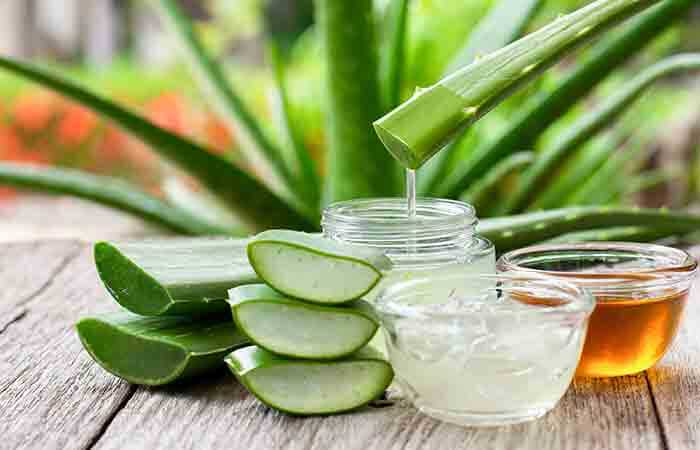Aloe vera, scientifically known as Aloe barbadensis miller, is a succulent plant renowned for its numerous health, beauty, and medicinal benefits. It belongs to the Asphodelaceae family and is native to arid regions in North Africa, although it’s now cultivated worldwide due to its popularity 51 Lottery Games.
Botanical Characteristics:
51 Game Login Aloe vera is characterized by its distinctive appearance, featuring thick, fleshy leaves that contain a gel-like substance. Here are some key botanical characteristics Raja Game Login :
- Leaves: Aloe vera leaves are green or bluish-green and can grow up to 24-36 inches in length. They are lance-shaped and have serrated edges.
- Gel: The inner part of the aloe vera leaf contains a clear, viscous gel with a slightly bitter taste. This gel is the part of the plant most commonly used for its medicinal and cosmetic properties.
- Flowers: Aloe vera plants produce tubular, yellow or orange flowers on tall stalks. These flowers typically bloom in the summer.
Historical Uses:
Aloe vera has a rich history of use dating back thousands of years. Here are some historical uses:
- Ancient Egypt: The ancient Egyptians referred to aloe vera as the “plant of immortality” and often used it in embalming practices and for skin care.
- Ancient Greece: Greek physicians, including Hippocrates, used aloe vera for various medicinal purposes, such as treating wounds and digestive issues.
- Ayurveda: Aloe vera has been a prominent ingredient in Ayurvedic medicine for centuries, and it is known for its cooling and soothing properties.
Nutritional Profile:
Aloe vera contains a range of bioactive compounds that contribute to its health benefits. These include:
- Vitamins: Aloe vera is a source of vitamins A, C, and E, which have antioxidant properties and are important for skin health.
- Minerals: It contains minerals like calcium, magnesium, and zinc, which play essential roles in various bodily functions.
- Enzymes: Aloe vera contains enzymes like amylase and lipase that aid in digestion.
- Amino Acids: It contains several of the essential amino acids required for protein synthesis in the body.
- Polysaccharides: Aloe vera contains various polysaccharides, including acemannan, which have immune-boosting and anti-inflammatory properties.
Health and Beauty Benefits:
Aloe vera offers a wide range of benefits, including:
- Skin Health: Aloe vera gel is widely used to soothe and hydrate the skin. It’s effective for treating sunburn, acne, eczema, and psoriasis.
- Wound Healing: Aloe vera accelerates wound healing and can reduce the appearance of scars.
- Digestive Health: It can help alleviate digestive issues like constipation and irritable bowel syndrome (IBS).
- Immune System Support: Aloe vera’s immune-boosting properties can help the body fight off infections.
- Anti-Inflammatory: Aloe vera has anti-inflammatory effects, making it useful for conditions like arthritis.
- Oral Health: Aloe vera is used in some dental products for its ability to reduce gum inflammation and promote oral hygiene.
- Hair Care: Aloe vera can improve hair health, reduce dandruff, and promote hair growth.
- Weight Management: Some studies suggest that aloe vera may support weight loss and healthy metabolism.
- Diabetes Management: It may help regulate blood sugar levels in individuals with diabetes.
- Cardiovascular Health: Aloe vera has potential benefits for heart health, including lowering cholesterol levels.
Ancient Origins and Early Uses:
- Ancient Egypt: Aloe vera has a rich history dating back thousands of years, with one of its earliest documented uses being in ancient Egypt. The plant was often referred to as the “plant of immortality” and was depicted in hieroglyphs on temple walls. Egyptians used aloe vera for various purposes, including embalming their pharaohs, as it was believed to preserve the body and provide safe passage to the afterlife.
- Ancient Greece and Rome: The ancient Greeks and Romans also recognized the medicinal properties of aloe vera. Greek physician Dioscorides mentioned its use as a treatment for wounds, digestive issues, and various skin conditions.
- Ayurveda: In ancient India, aloe vera found a place in Ayurvedic medicine, one of the world’s oldest holistic healing systems. It was used to treat a wide range of ailments, including skin diseases, constipation, and inflammatory conditions.
Precautions:
While aloe vera is generally considered safe for topical and oral use, some individuals may be sensitive to it. It’s essential to:
- Perform a patch test before using aloe vera on the skin to check for allergies or irritation.
- Consult a healthcare professional before using aloe vera supplements, especially if you have underlying medical conditions or are taking medications.
In conclusion, Top Color Prediction Website in India aloe vera is a versatile and beneficial plant with a long history of use for health and beauty purposes. Its gel contains a wealth of nutrients and bioactive compounds that make it a valuable natural remedy for various ailments and skin conditions. Whether applied topically or consumed in various forms, aloe vera can be a valuable addition to your wellness routine.
